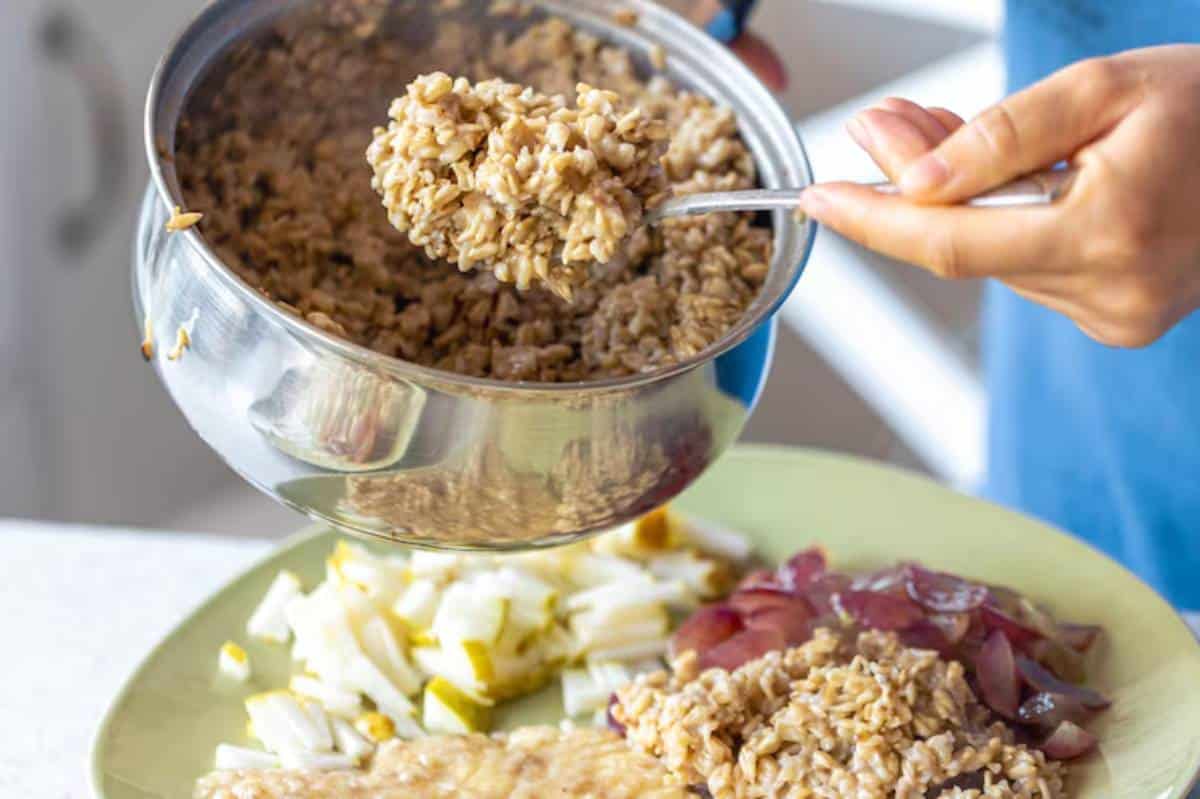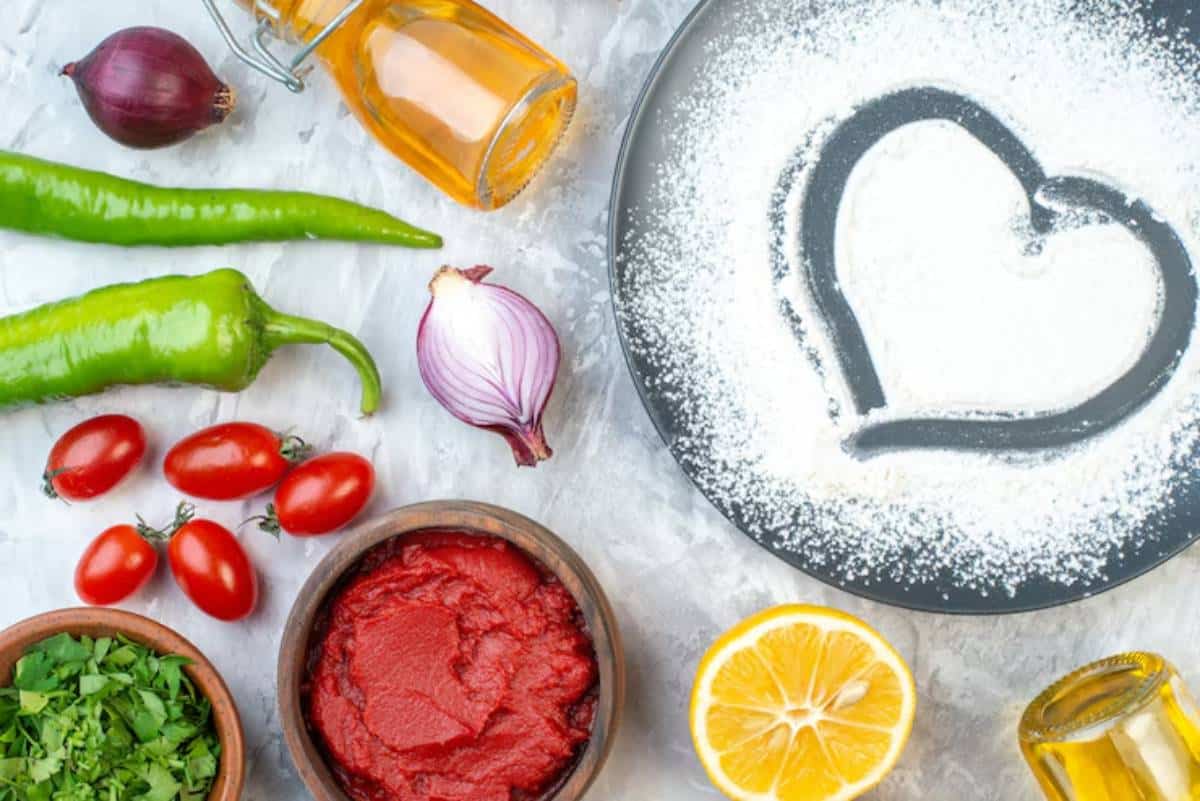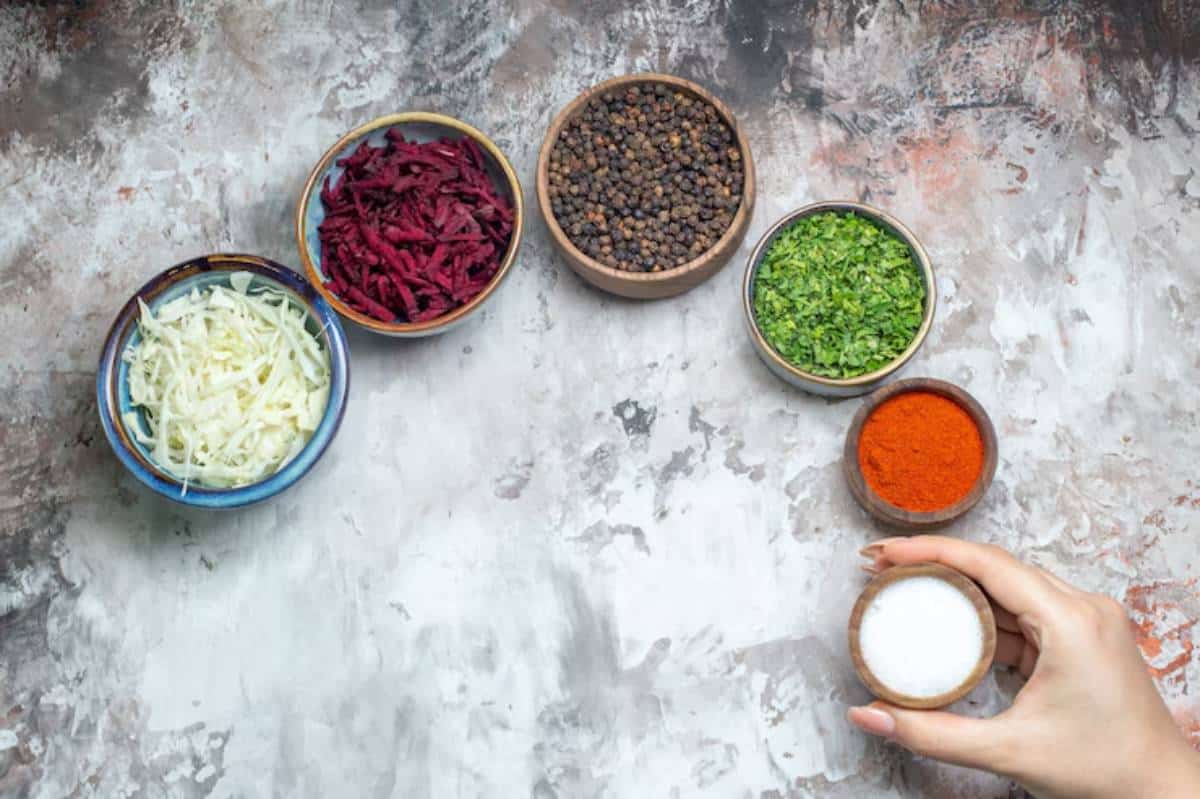
Best Mediterranean Spices & Herbs to Keep at Home
Have you ever wondered why Mediterranean dishes taste so vibrant and unforgettable? It’s not just the fresh produce or healthy fats — it’s the spices and herbs that truly bring each dish to life. These flavour boosters have been used for centuries across regions like Greece, Italy, Morocco, Turkey, and Spain, not just for taste but also for their incredible health benefits.
Whether you’re preparing a classic Greek salad, a Moroccan tagine, or a rustic Italian pasta, having a stock of Mediterranean spices and herbs at your fingertips can transform even the simplest ingredients into a feast.
In this guide, we’ll walk you through the best herbs for Mediterranean food, how to use them, and how to store them for maximum flavour. Along the way, we’ll share practical cooking tips, cultural tidbits, and expert advice to help you confidently navigate your spice rack like a Mediterranean chef.

Why Spices & Herbs Are Central to Mediterranean Cooking
Before we dive into the list, it helps to understand the role of fresh herbs and spices in this regional cuisine:
- Flavour Enhancement: They bring balance and depth to simple, natural ingredients.
- Health Benefits: Many are anti-inflammatory and rich in antioxidants.
- Cultural Identity: Every region uses specific blends and herbs to express its local culinary heritage.
- Low-Sodium Cooking: Herbs and spices reduce the need for excessive salt while maintaining rich flavours.
So, let’s stock that spice drawer the Mediterranean way.
Essential Mediterranean Herbs to Keep at Home
1. Oregano: The Quintessential Herb
Used across Greek, Italian, and Turkish dishes, oregano is a must-have.
Common Uses:
- Sprinkled over grilled meats or vegetables
- Infused in olive oil for dipping
- Stirred into tomato-based sauces
Use dried oregano for intensity; fresh for subtlety.
2. Basil: Sweet and Peppery
An essential in Italian cooking, basil is delicate but powerful.
Common Uses:
- Caprese salads
- Tomato sauces (think Marinara or Bolognese)
- Pesto (combine with pine nuts, garlic, EVOO, and Parmesan)
Storage: Keep fresh basil in a glass of water, like flowers.
3. Thyme: Earthy and Aromatic
Thyme is used extensively in French, Italian, and Greek dishes.
Great In:
- Roasted meats and potatoes
- Bean stews
- Lemon chicken dishes
Strip leaves from the stem by pinching and sliding.
4. Rosemary: Piney and Potent
A little goes a long way with rosemary.
Try It In:
- Roast lamb or chicken
- Olive oil focaccia
- Vegetable soups
Use whole sprigs when roasting; remove before serving.
5. Parsley: Bright and Fresh
Flat-leaf parsley is a staple in North African and Levantine cooking.
How It’s Used:
- Chopped into tabbouleh
- As a garnish for soups and stews
- Mixed into marinades and salad dressings
Health Note: High in vitamin C and iron.
6. Mint: Refreshing and Sweet
Often associated with desserts, mint has savoury powers too.
Use In:
- Yoghurt sauces like tzatziki
- Lamb marinades
- Couscous salads
Freeze chopped mint in olive oil in an ice cube tray.
7. Dill: Light and Anise-Flavoured
Popular in Greek and Turkish cuisine.
Try In:
- Egg and potato dishes
- Greek spanakopita
- Pickling brines
Pair With: Lemon, yoghurt, and fish.
8. Bay Leaves: Background Depth
Bay leaves are usually simmered and removed before serving.
Best For:
- Soups and stews
- Lentil dishes
- Tomato sauces
Dried bay leaves are stronger than fresh.
9. Coriander (Cilantro): Controversially Loved
Used across the eastern Mediterranean.
Applications:
- Falafel
- Couscous bowls
- Herb sauces like chermoula
Taste Note: Fresh is citrusy, while dried coriander seed has a warmer, spiced tone.
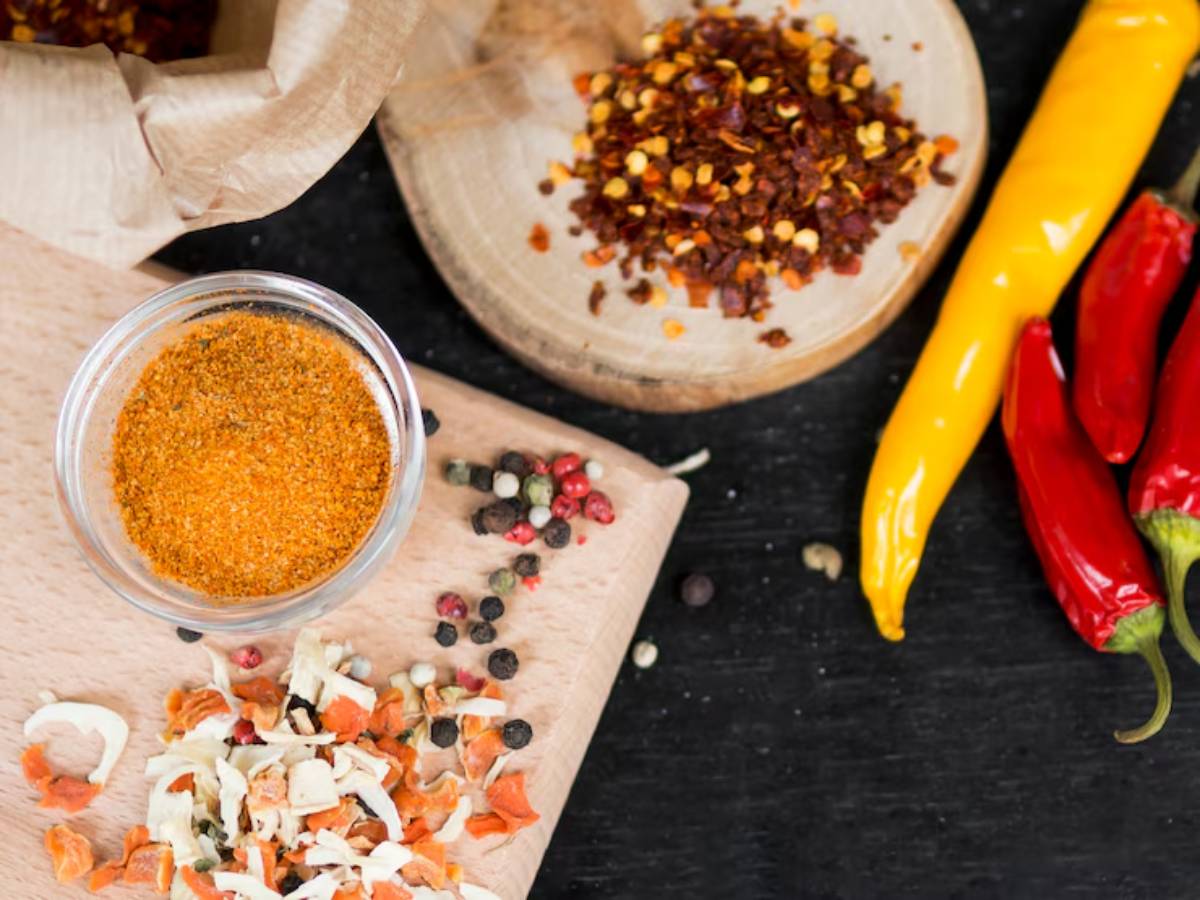
Must-Have Mediterranean Spices for Your Pantry
10. Cumin: Warm and Earthy
Found in North African, Middle Eastern, and Spanish cuisines.
Ideal In:
- Falafel and hummus
- Lentil and bean stews
- Roasted root veg
Toast the seeds to bring out the aroma.
11. Paprika: Smoky, Sweet, or Spicy
A Spanish and Hungarian favourite with Mediterranean reach.
Use In:
- Paella
- Grilled meats
- Romesco sauce
Variants: Sweet, hot, and smoked (pimentón)
12. Sumac: Tart and Tangy
A lesser-known but powerful red powder.
Common Uses:
- Sprinkled on salads or hummus
- Rubbed on meats
- In za’atar blends
Use as a citrus alternative in spice blends.
13. Cinnamon: Not Just for Desserts
In Moroccan and Lebanese dishes, cinnamon shines in savoury contexts.
Savoury Ideas:
- Chicken tagines
- Tomato sauces
- Lamb meatballs
Keep sticks and grind fresh if possible.
14. Turmeric: Golden and Earthy
Used sparingly, it adds colour and anti-inflammatory benefits.
Use It:
- In rice pilafs
- With lentils or chickpeas
- In fish marinades
Pair With: Black pepper (it enhances absorption).
15. Za’atar: The Mediterranean Mix
A regional blend including thyme, sesame seeds, and sumac.
Try It On:
- Flatbreads with olive oil
- Labneh dip
- Roasted vegetables
Mix dried thyme, oregano, sumac, and sesame seeds.
16. Allspice: Sweet and Savoury Hybrid
Used in Levantine cooking for meat rubs and stews.
Use In:
- Kibbeh
- Stuffed vegetables
- Lentil dishes
It’s a single spice, not a blend!
How to Store Herbs and Spices for Freshness
Keeping your herbs and spices fresh is crucial.
Storage Tips:
- Use airtight containers (glass is ideal).
- Keep away from light and heat.
- Don’t store over the cooker.
- Label with purchase dates.
Shelf Life:
- Dried herbs: 1–2 years
- Ground spices: 6–12 months
- Whole spices: Up to 2 years
Creating Your Own Mediterranean Spice Blends
Want to take it further? Mix your own blends to suit your palate.
Examples:
Mediterranean All-Purpose Blend:
- Oregano
- Basil
- Garlic powder
- Paprika
- Sea salt
Herbes de Provence:
- Thyme
- Rosemary
- Savoury
- Marjoram
- Lavender (optional)
Chili-Herb Rub:
- Crushed red pepper
- Thyme
- Coriander
- Cumin
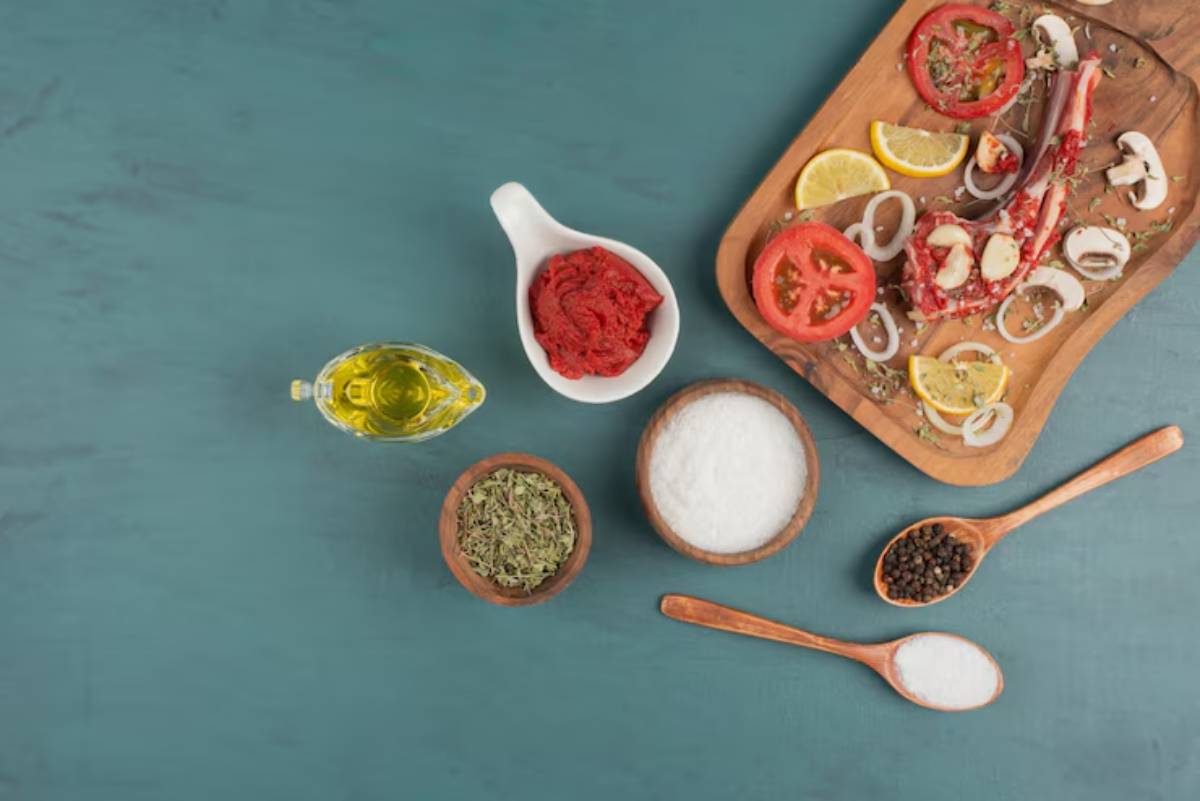
Use Mediterranean Spices in Everyday Cooking
Practical Ideas:
- Rub meats with spice blends before grilling or roasting.
- Infuse oils with garlic, thyme, and oregano.
- Sprinkle herbs over finished dishes to add freshness.
- Add spices to grains while they cook for extra depth.
Conclusion: Spice Up Your Mediterranean Journey
Spices and herbs are not just ingredients — they’re storytellers, health boosters, and flavour carriers. By stocking your pantry with these essential Mediterranean herbs and spices, you’re empowering yourself to cook with colour, balance, and joy.
From basil and oregano to sumac and za’atar, each one brings something special. And as you grow more confident using them, you’ll start creating your own blends, your own style, your own Mediterranean memories.
Feeling inspired? Take the next step by building a pantry that supports your culinary goals. Visit how to stock your pantry for Mediterranean cooking to get started.
